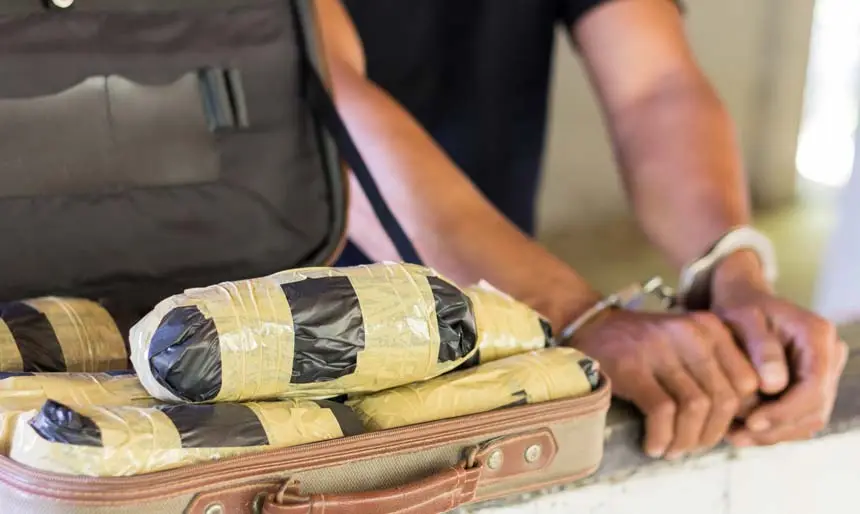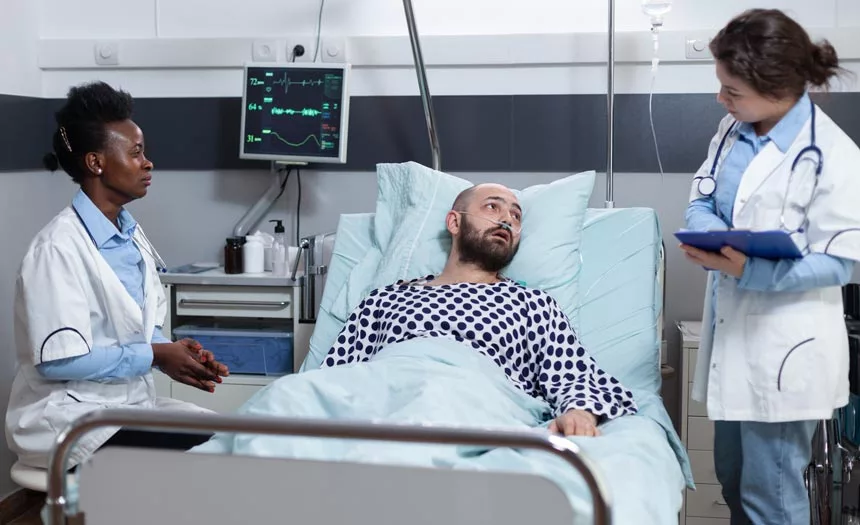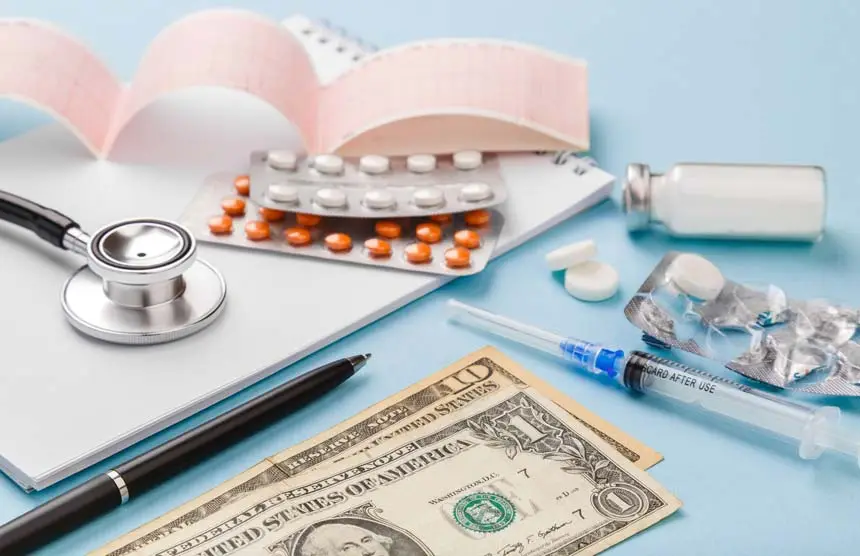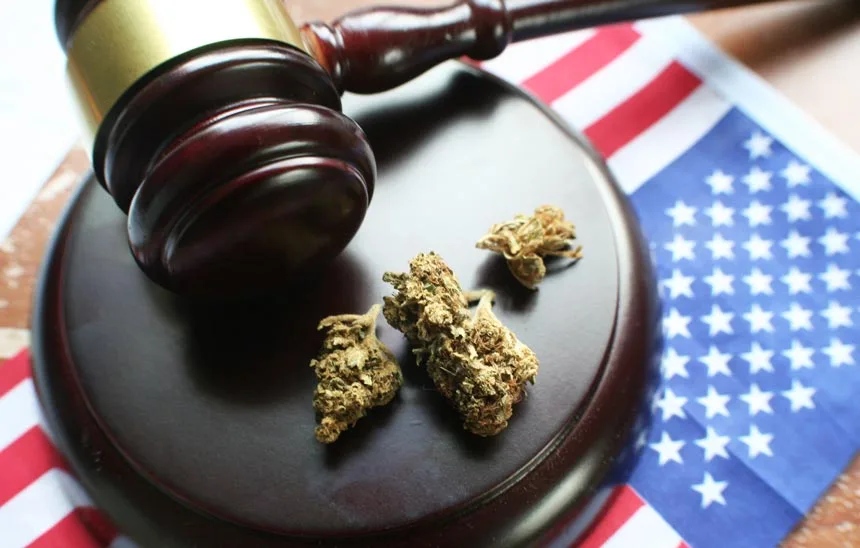New Hampshire Rehabs: Find A Rehab In New Hampshire Today
Table of Contents
- New Hampshire Rehabs: Find A Rehab In New Hampshire Today
- Drug & Alcohol Addiction Rehabs In New Hampshire
- Drug Trafficking and Heroin in New Hampshire
- Addiction Treatment Costs in New Hampshire and Low-Cost Options
- Substance Abuse and Rehab for At-Risk Groups
- The Need for Dual Diagnosis Treatment Programs in New Hampshire
- New Hampshire Mental Health Treatment and Resources
- What are the Drug Laws in New Hampshire?
- What are the Addiction Treatment Regulations In New Hampshire?
- Finding Addiction Aftercare in New Hampshire
- Find a New Hampshire Alcohol and Drug Rehab Center Now
New Hampshire, sometimes known as The Granite State, is famed for its rugged beauty and colorful history. Unfortunately, it also boasts among of the country’s highest rates of drug and alcohol abuse.
Because it is being ravaged by the addiction pandemic, a record number of people are seeking addiction therapy. If you or someone you love is struggling with addiction, this guide outlines what you need to know about New Hampshire alcohol and drug rehab centers, so keep reading for full details and resources!
Drug & Alcohol Addiction Rehabs In New Hampshire
In a given year, around 265,000 New Hampshire people – 19.54 percent of the state population – use illegal substances, and another 71,000 – 5.23 percent of the state population – abuse alcohol. As a result, drugs and alcohol were responsible for 18.61 percent of all fatalities in New Hampshire between 2008 and 2017, about six percentage points higher than the national average of 12.71 percent.
Dover-Rochester had the greatest percentage of drug- and alcohol-related deaths among New Hampshire’s four most populated cities during that time period, at 19.64 percent, while Derry-Salem had the lowest rate, at 17.06 percent.
This resource was developed to assist the many New Hampshire citizens who are battling with substance misuse and addiction in locating inexpensive treatment that will put them on the road to recovery. It is also meant to educate the general population in New Hampshire about the hazards of substance usage.
If you need assistance locating a rehabilitation center in New Hampshire, you can use our directory to get low-cost, high-quality care right away. Continue reading to learn how to use the directory and which rehabilitation centers qualify as the highest-rated, low-cost facilities in the state.
Drug Trafficking and Heroin in New Hampshire

New Hampshire has been one of the states hardest hit by the country’s expanding heroin addiction. The number of heroin-related deaths in the state increased by 40% between 2013 and 2014. During the same time period, fentanyl-related mortality increased by 650 percent.
When it comes to easily accessible substance misuse treatment and rehabilitation programs, New Hampshire ranks second worst in the country.
Unfortunately, the transportation of illegal narcotics into and out of New Hampshire is prevalent. Heroin is frequently obtained via drug wholesalers in Massachusetts, particularly in the cities of Lawrence and Lowell. Cocaine and other drugs are commonly shipped from New York, Pennsylvania, New Jersey, Washington, D.C., and Canada. Interstate 95, Interstate 93, and Route 3 in New Hampshire are the principal north-south routes used to transport goods throughout the New England region.
Another vulnerable category in New Hampshire is young adults aged 18 to 25. The state has one of the highest rates of illegal drug dependence and pain medication addiction in the country. While young adults are less likely to use heroin, they are becoming hooked to harmful street substances such as hallucinogens, MDMA, ketamine, and LSD. These narcotics are commonly used and traded in dance clubs, residential neighborhoods, taverns, and other venues.
Approximately 11% of New Hampshire citizens have used an illegal substance in the last 30 days. This is higher than the national average of 8%. However, as more people witness the devastation caused by drug usage, they are beginning to seek treatment.
New Hampshire Inpatient Drug Rehabs
Patients will be housed in inpatient care programs for the duration of their treatment program, which might be many weeks or even months. This separation from a patient’s normal living arrangement helps to place them in a recovery-friendly atmosphere and allows them to focus on conquering their addiction.
Patients will follow an intensive treatment plan and timetable at the New Hampshire drug rehab of their choice, which often includes a combination of behavioral therapy, individual counseling, group programs, holistic therapies, and recreational activities.
New Hampshire Outpatient Programs
Outpatient care often lasts many weeks at a time and does not need patients to dwell at the institution. A partial hospitalization program, the most severe level of outpatient care, will require several hours of treatment each week, including individual and group therapy. A regular outpatient program, on the other hand, may just require patients to attend an hour or two of treatment per week.
Outpatient treatment centers in New Hampshire may be appropriate for those who have recently completed rehab and are searching for continuing care, as well as those with less severe substance use issues. Patients may be able to attend school or work because to the flexible schedule.
The Importance of Medical Detox

Detoxing the body from drugs and alcohol is often the first step in treatment. While this procedure can be carried out in both inpatient and outpatient settings, a professional detox program is frequently suggested.
A medical detox facility in New Hampshire will have medical professionals on-site to monitor patients and care for their withdrawal symptoms 24 hours a day, seven days a week. This treatment may include the administration of drugs as well as moral support.
Luxury Rehabs in New Hampshire
A standard treatment center may not be suitable for everyone. A luxury rehab in New Hampshire may be a better alternative for folks looking for a more sophisticated location for treatment. While each institution is unique, these programs typically feature additional services and amenities that are not available at a regular treatment center.
Many include gourmet dining and private rooms, as well as services such as housekeeping and spa treatments. These treatment facilities may also have less stringent guidelines around technology use and stricter privacy safeguards.
Assistance with a Dual Diagnosis
Going to a traditional drug rehab clinic in New Hampshire may not be enough for folks who have also been diagnosed with a mental health problem. While most institutions provide some level of mental health care, a dual diagnosis treatment center in New Hampshire will have the staff and tools necessary to address both mental health and substance use disorders.
Clients in a dual diagnosis treatment program will work one-on-one with mental health specialists as well as participate in support groups with other people dealing with similar issues.
Medication-Assisted Treatment (MAT) Program

There are several drugs that can aid in your rehabilitation. They can alleviate withdrawal symptoms, reduce cravings, counteract the effects of certain substances, and cure underlying mental illnesses. As a result, MAT is becoming more common in addiction therapy.
In fact, according to 2018 data, more than 44 percent of New Hampshire treatment institutions employed MAT for opioid addiction. Since that time, this number has risen even further as many centers witness the efficacy of such treatment in helping clients through withdrawals and the most difficult stages of early recovery.
New Hampshire Sober Living Homes
Sober living residences (also known as recovery homes) are group homes that assist recovering addicts in transitioning from treatment institutions to independent living while maintaining their sobriety.
Residents in sober living homes can stay for a few months to several years if they follow house rules and avoid relapse, as these facilities often have a zero-tolerance drug and alcohol policy. Residents are also expected to accomplish tasks, join mutual support groups, and contribute an equal amount of the rent.
This is the next step in your rehabilitation once you have completed detox and inpatient rehab, and usually occurs alongside either and intensive outpatient program (IOP) or along with attendance at outpatient services.
Consider this a “trial run” for when you return completely to society. You’ll have more freedom and responsibility, but you’ll be living in a structured atmosphere with other addicts in recovery. You’ll also have access to treatment providers and be required to maintain your sobriety.
What Happens After Rehab in New Hampshire?
Keep in mind that rehabilitation is a continual process. You can continue benefit from addiction treatment after you have completed detox, inpatient rehab, and sober living.
Because life can be stressful, it’s critical to keep your sobriety robust and healthy. Group therapy, psychotherapy, and 12-Step meetings are common components of aftercare programs.
Addiction Treatment Costs in New Hampshire and Low-Cost Options

When looking for the best New Hampshire drug treatment for your needs, consider both the cost and the program itself. The cost of substance use disorder treatment will vary depending on a variety of circumstances, but there are numerous payment methods available.
Insurance is one of the most frequent ways to cover at least some of the costs. Substance use disorder therapy is covered to varying degrees by private and state health insurance policies. Most private treatment clinics will be in-network with numerous insurance companies, however, they may not accept public insurance such as Medicaid or Medicare.
When insurance is insufficient, many rehabs in New Hampshire will provide payment plans or financing options.
If a private treatment center is not in your budget, you might look into state-funded and local addiction resources.
Using Insurance to Pay for Rehabs in New Hampshire
All of this may appear to be costly, but most treatment centers accept insurance. Furthermore, federal law requires insurance companies to treat addiction like any other health problem.
If you wish to utilize your insurance to pay for addiction treatment, contact Find Addiction Rehabs. Their representatives can tell you whether they’ll cover some or all of the procedure.
Furthermore, many treatment facilities have insurance experts on staff. They can go over your insurance and determine the coverage with you.
The following insurance companies are typically accepted in New Hampshire:
Substance Abuse and Rehab for At-Risk Groups
Substance Abuse Treatment for Veterans
According to the National Center for PTSD at the U.S. Department of Veterans Affairs, roughly one in every three veterans seeking treatment for a substance use problem also has a PTSD diagnosis as of early 2019. Similarly, one in every four soldiers who have been diagnosed with PTSD also has a substance use disorder.
Furthermore, one in every ten veterans of the conflicts in Iraq and Afghanistan who attend a VA health care institution has a substance use disorder.
There is, however, hope for veterans suffering from a substance use disorder, since they have access to extra options for treatment of an SUD or co-occurring SUD and PTSD, and VA benefits frequently pay the cost of this therapy. Follow these steps to get help with substance abuse treatment from the VA healthcare system:
Enroll:If you are not currently registered, you can find out if you are qualified for VA health benefits and then apply. You might also look into the Alcohol and Drug Dependence Rehabilitation Program of the Department of Veterans Affairs.
This program is accessible in VA medical centers and outpatient clinics across the country and offers a number of treatment choices for veterans addicted to drugs and alcohol, including rehabilitation, detoxification, and psychiatric care. Keep in mind that in order to be eligible for the program, you must already be enrolled in the VA healthcare system.
Discover:Call or visit your local VA medical institution to see whether they offer substance use disorder (SUD) therapy. Call the VA hotline if you don’t know where the nearest VA medical center is.
Find Treatment:Veterans in New Hampshire should contact Find Addiction Rehabs to learn more about drug abuse treatment options in their state, including the possibility of a VA-based substance use disorder (SUD) program.
Vets can also get information about substance misuse treatment services on the DHHS website through NHCarePath and the Division of Community-Based Military Programs.
Treatment is offered in New Hampshire for veterans suffering from a substance use issues. As of 2017, nine substance misuse treatment centers in New Hampshire specialized particularly in services for veterans, accounting for 13.4 percent of all treatment facilities.
The Need for Dual Diagnosis Treatment Programs in New Hampshire

Substance misuse and mental health concerns frequently coexist; the formal phrase is “co-occurring substance use and mental health disorders.”
According to the Substance Abuse and Mental Health Services Administration (SAMHSA), 45.6 percent of people with a substance use disorder had a mental health issue in 2017, while 18.3 percent of persons with a mental health disorder had a substance use disorder.
New Hampshire Mental Health Treatment and Resources
If you or someone you care about is suffering from a mental health problem, such as depression, PTSD, eating disorders, or severe anxiety, there are numerous options available to assist you.
Here are a pair of options for getting quick help, as advised byMentalHealth.gov:
Emergency Services:If your life (or the life of someone else) is in danger, always contact 911 for rapid emergency services access.
Suicide Prevention:The National Suicide Prevention Lifeline number is 800-273-8255. You can also start a private online live conversation.
Here are two methods for locating a mental health care provider in New Hampshire:
New Hampshire DHHS Bureau of Behavioral Health (BBH):The BBH website includes a section dedicated to informing the public about how to obtain mental health resources and treatment.
New Hampshire National Alliance on Mental Illness (NAMI):The New Hampshire chapter of NAMI provides information on mental health options around the state, with sections dedicated to youth and veterans.
Individuals suffering from both substance abuse and mental health issues may benefit from dual-diagnosis treatment centers. To identify rehabilitation centers with treatment programs tailored to meet the unique problems given by co-occurring substance use and mental health disorders, select the appropriate filter in our tool above.
What are the Drug Laws in New Hampshire?
Possession, production, and distribution of illegal narcotics are all punishable by law in New Hampshire. Drugs are classified into five schedules based on their propensity for addiction and medical applications. Schedule I and II substances, for example, have no medical applications and are extremely addictive.
Heroin, LSD, methaqualone, oxycodone, methamphetamine, methadone, and cocaine are among them. Schedules IV and V, on the other hand, contain medications that may be used for medical purposes and have a lower risk for misuse. Schedules IV and V include Xanax, Valium, Ambien, Lyrica, and some cough medications.
You will face additional penalties if you are caught possessing or selling an illegal substance within 1,000 feet of a public or private school. In these cases, the sentence for jail time and fines will be increased.
What are the Marijuana Laws In New Hampshire?

Medical marijuana became legal in New Hampshire in June 2013 as part of House Bill 573. A few years later, in April 2016, the first dispensary opened its doors and began servicing patients. As of August 2016, over 1,300 people were enrolled in the program.
The qualifying requirements for medical marijuana in New Hampshire are as follows:
- ALS
- HIV/AIDS
- Epilepsy
- Alzheimer’s disease
- Elevated intraocular pressure
- Glaucoma Cancer
- Chemotherapy-induced anorexia
- Chronic pancreatitis
- Crohn’s disease
- Moderate to severe vomiting
- Nausea
- Wasting syndrome
- Traumatic brain injury
- Muscular Dystrophy
- Hepatitis C
- Lupus
- Multiple Sclerosis
- Parkinson’s disease
- Persistent muscle spasms
- Seizures
- Severe pain
- Spinal cord injury or disease
Patients on medical marijuana are only allowed to possess two ounces at a time. Individuals must purchase marijuana from a certified state dispensary because home cultivation is completely illegal.
While medical marijuana is authorized in New Hampshire, recreational marijuana use is prohibited. Senate Bill 498 was passed in June 2016 to decrease the penalty for first-time marijuana offenders. Criminal charges for a first offense were reduced from a Class A offense to an undefined misdemeanor punishable by up to one year in jail and a $350 fine.
Subsequent violations frequently result in more serious criminal charges and punishments. Fines and jail time will be increased if the crime occurs within 1,000 feet of a school zone. Individuals under the age of 21 will also face a driver’s license suspension ranging from one to five years for those under the age of 18, and from 90 days to one year for those under the age of 21.
What are the Addiction Treatment Regulations In New Hampshire?

In response to the alarming rise in heroin and opiate usage, New Hampshire has implemented harm reduction legislation. Harm reduction legislation is enacted to mitigate the harm caused by illegal substances.
Naloxone laws, methadone clinics, clean syringe access, prescription drug monitoring programs (PDMPs), and high-intensity drug trafficking area (HIDTA) initiatives are other examples. Each harm reduction statute seeks to assist individuals in need while also keeping New Hampshire neighborhoods safe and healthy.
New Naloxone Laws In New Hampshire to Combat Opioid Overdose
In May 2015, House Bill 271, relating to the distribution of naloxone, became law. The law makes naloxone available to family members, friends, and persons who are in danger of overdoes. Naloxone acts by undoing the effects of an opioid overdose. The medicine takes effect two to five minutes after delivery and remains in the body’s system for 30 minutes to an hour.
The number of emergency medical service cases employing Narcan, the brand name for naloxone, increased by 203.7 percent between 2012 and 2015. The greatest growth occurred between 2013 and 2014, with an 83 percent increase.
Thousands of naloxone kits have been supplied to NH law enforcement agencies, emergency rooms, community health centers, and other local substance misuse organizations since the law’s passage. Throughout the state, agencies will learn how to educate and train the general people on how to use naloxone.
Finding Addiction Aftercare in New Hampshire

Substance addiction aftercare treatment is sometimes disregarded, yet it is a critical stage in the rehabilitation process. Individuals who attempt to continue their lives without getting further treatment in an aftercare setting significantly increase their chances of relapsing following rehab.
For recovering addicts, several types of aftercare are offered, including follow-up visits for continuous therapy, group therapy, and sober living homes. According to research, long-term engagement in aftercare programs significantly improves the outcome of rehabilitation efforts.
12-Step Addiction Meetings and AA in New Hampshire
The 12-step approach was developed by Alcoholics Anonymous (AA) for persons recovering from alcohol addiction, and there are now many additional 12-step groups for other addictions and disorders, with Narcotics Anonymous (NA) being only one example.
Find a New Hampshire Alcohol and Drug Rehab Center Now
When you’re ready to start living an alcohol and/or drug-free life in recovery, you’ll require the best addiction treatment has to offer. Finding expert assistance could be one of the most important decisions you make in your life. A quick and confidential call to our recovery representatives at Find Addiction Rehabs can help with this process, with same-day placement possible if desired.
Substance abuse treatment is accessible in New Hampshire for everyone who requires assistance in overcoming an addiction; you do not have to suffer alone.
Contact Find Addiction Rehabs now and join the many clients throughout the state of New Hampshire who have found recovery and a new way of life!


